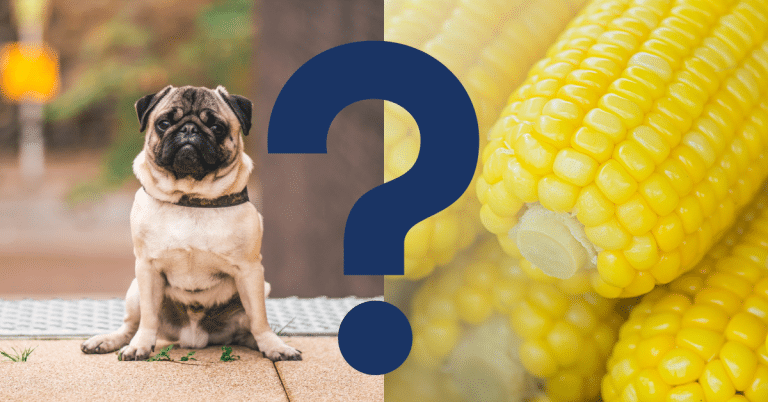Can Dogs Eat Celery? A Vet’s Opinion

Celery is a crunchy green vegetable that belongs to the Apiaceae family.It is a low-calorie vegetable that is high in fiber and contains a variety of vitamins, but can you feed celery to your dog?
Yes, celery can be a healthy and nutritious treat for dogs in moderation. It is low in calories and high in fiber, vitamins, and minerals such as vitamin K, vitamin C, potassium, and folate. However, it is important to prepare celery properly and feed it to your dog in moderation, as too much fiber can cause digestive upset or diarrhea in some dogs. Additionally, celery should never be a substitute for a balanced and complete diet, and should only be given as an occasional treat or supplement to your dog’s regular meals. It is always best to consult with your veterinarian before introducing celery or any other new food to your dog’s diet.
Let’s dive in and find out more!
Benefits Of Celery For Dogs
Celery can provide a variety of health benefits for dogs, including:
- Promoting good digestive health: Celery is high in fiber, which can help regulate digestion and promote healthy bowel movements in dogs.
- Reducing inflammation: Celery contains antioxidants and anti-inflammatory compounds that can help reduce inflammation throughout the body, including the joints.
- Supporting heart health: Celery is a good source of potassium, which can help regulate blood pressure and support overall heart health in dogs.
- Promoting dental health: The act of chewing celery can help promote healthy teeth and gums in dogs, and the fibrous texture can help clean teeth and reduce plaque buildup.
- Providing essential nutrients: Celery is a good source of vitamins and minerals such as vitamin K, vitamin C, and folate, which can help support a dog’s overall health and wellbeing.
- Helping with weight management: Celery is a low-calorie and low-fat snack that can help dogs feel full without adding excess calories to their diet, making it a good option for dogs that are overweight or prone to weight gain.
Overall, celery can be a healthy and beneficial addition to a dog’s diet in moderation, as long as it is prepared properly and given in appropriate amounts. As with any new food or supplement, it is important to introduce celery gradually and monitor your dog’s reaction for any signs of digestive upset or other adverse effects.

How To Safely Give Celery To Dogs
To safely give celery to your dog, follow these tips:
- Wash thoroughly: Before giving celery to your dog, make sure to wash it thoroughly to remove any dirt, pesticides, or other contaminants.
- Cut into bite-sized pieces: Cut celery into small, bite-sized pieces to make it easier for your dog to chew and digest.
- Remove the strings: Celery strings can be difficult to digest and can pose a choking hazard for dogs, so make sure to remove them before feeding celery to your dog.
- Introduce gradually: Introduce celery to your dog’s diet gradually, starting with small amounts and gradually increasing the amount over time.
- Monitor for adverse reactions: Watch your dog for any signs of digestive upset or other adverse reactions, such as vomiting or diarrhea, after giving celery for the first time.
- Use as a treat or supplement: Celery should be given as an occasional treat or supplement to your dog’s regular meals and should not be used as a substitute for a balanced and complete diet.
Always consult with your veterinarian before introducing new foods or supplements to your dog’s diet, especially if your dog has any underlying health conditions. By following these tips, you can safely and effectively incorporate celery into your dog’s diet as a healthy and nutritious treat or supplement.
Will Celery Make A Dog Sick?
Celery is generally safe for dogs to eat in moderation, but it is possible for it to cause digestive upset or other adverse reactions in some dogs. Eating too much celery at once can cause diarrhea or other gastrointestinal issues, especially if your dog is not used to eating high-fiber foods. In addition, the stringy texture of celery can be difficult for dogs to digest and can cause choking or other digestive problems if swallowed whole.
If you notice any signs of digestive upset or other adverse reactions after giving your dog celery, such as vomiting, diarrhea, or abdominal pain, stop giving celery and contact your veterinarian. It is also important to be aware of any other health conditions your dog may have, such as food allergies or sensitivities, that could make celery or other foods less safe for them to eat. In general, celery should be given in moderation and as part of a balanced and complete diet that meets all of your dog’s nutritional needs.
Can Dogs Eat Celery Variations?
In general, dogs can eat various types of celery, including raw, cooked, and canned. However, it is important to note that celery that is cooked or canned may contain added salt, preservatives, or other ingredients that could be harmful to your dog in large amounts. Therefore, it is best to offer your dog plain, fresh celery in moderation and as part of a balanced and nutritious diet.
Additionally, avoid giving your dog any celery that is seasoned with spices or other flavorings, as these can upset your dog’s stomach or cause other adverse reactions.

Vet’s Summary
Celery can be a healthy and nutritious addition to a dog’s diet when given in moderation. It is low in calories, high in fiber, and contains vitamins and minerals that can support your dog’s overall health and well-being. The high fiber content of celery can help promote digestive health and regularity in dogs, while the vitamins and minerals in celery, such as vitamin K, potassium, and folate, can support your dog’s immune system, bone health, and more. Additionally, the crunchy texture of celery can help clean your dog’s teeth and promote healthy chewing habits, which can benefit their oral health. However, it is important to remember that moderation is key to avoiding digestive upset or other adverse reactions.
Probiotics for dogs are essential in providing health benefits when consumed in adequate amounts. They can help support digestive health, boost the immune system, and improve overall well-being in dogs. Probiotics can be found in some commercial dog foods or given in the form of supplements, but it is important to consult with a veterinarian before starting your dog on any new supplement regimen.
Videos To Watch
If you are wondering what related foods are good to give your dog, watch this:
And if you want to know what a dog can NOT eat, watch this:






